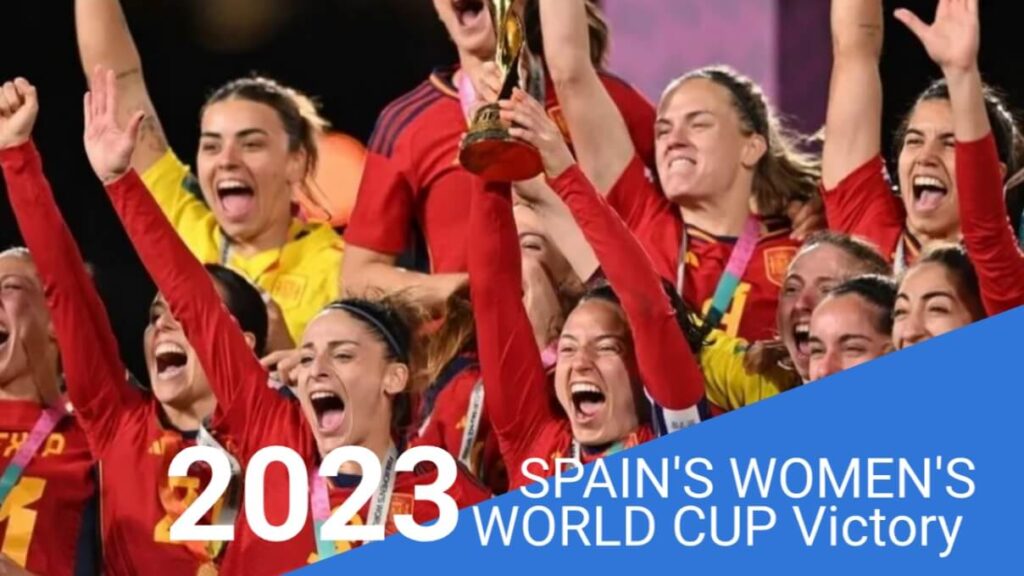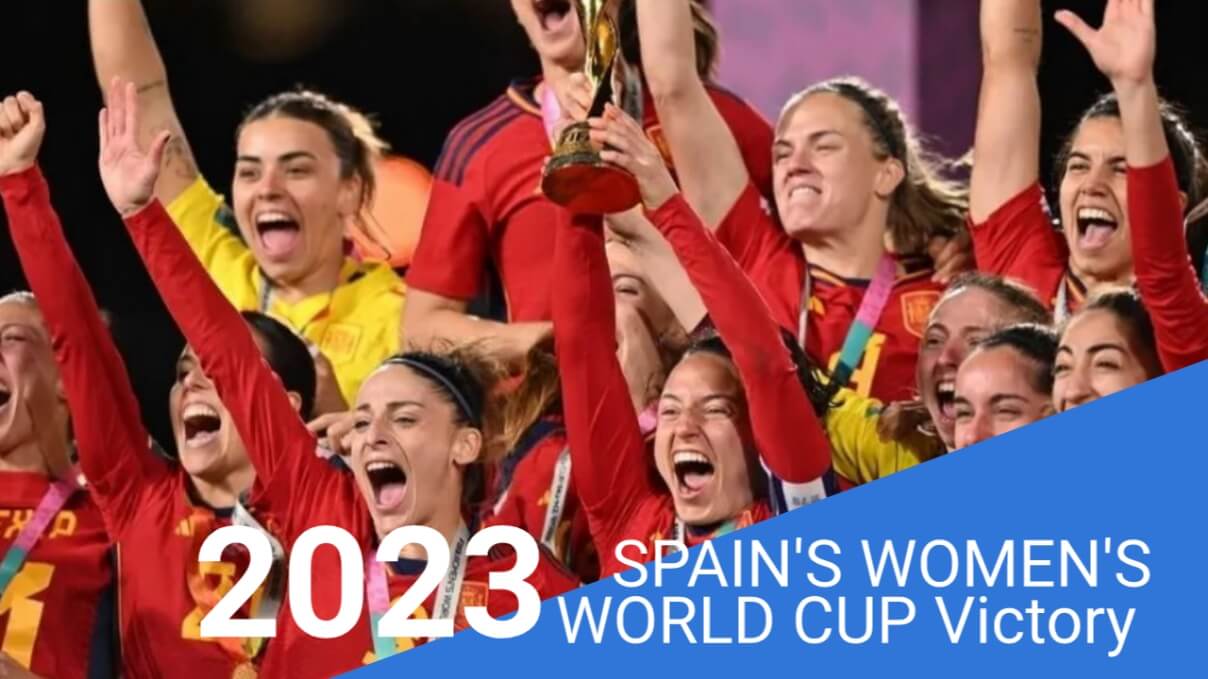Spain secured its inaugural Women’s World Cup championship in under a year following a player uprising, prevailing over England 1-0 on Sunday courtesy of Olga Carmona’s first-half strike.

This significant international victory marked Spain as the inaugural European team to clinch the Women’s World Cup since Germany’s win in 2007.
As the final whistle echoed, Spanish players embraced near their goal, forming a triumphant pile-up. The historic moment was captured on August 20, 2023, in a snapshot by Getty Images.
Spain emerged triumphant in its first Women’s World Cup campaign, triumphing a mere year after a player revolt. The team managed to fend off England with a slender 1-0 scoreline, courtesy of Olga Carmona’s well-placed goal during the first half.
This triumph marked Spain’s debut major international title, simultaneously making them the first European side to seize the Women’s World Cup since Germany’s achievement in 2007.
The culmination of the match saw Spanish players celebrating exuberantly, piling on each other near their goalpost, reflecting the elation and pride that accompanied their victory.
In the 29th minute, Carmona’s left-footed shot gracefully found the far corner of the net, narrowly eluding the outstretched hands of England’s goalkeeper Mary Earps, thereby setting the stage for Spain’s triumph.
In a poignant display of celebration, Carmona raised her jersey, revealing the inscription “Merchi” inked onto her undershirt—a tribute to her former school.
Carmona’s impact extended beyond the final match, as she replicated her heroics from the semifinals by netting the game-winning goal in the 89th minute of Spain’s 2-1 victory against Sweden. This feat marked her as the first player since Carli Lloyd in 2015 to score in both a World Cup semifinal and final.
Despite a near-mutiny by players the previous year, Spain managed to overcome challenges and secure victory. Fifteen players had taken a break from the national team, citing mental health concerns and advocating for a more professional environment. Notably, Ona Batlle, Aitana Bonmatí, and Mariona Caldentey, three of these players, reconciled with the federation and contributed to Spain’s World Cup journey.
Entering the tournament with the momentum of a European Championship victory on home soil the previous summer, England faced setbacks as key players such as captain Leah Williamson, Fran Kirby, and Beth Mead were sidelined with knee injuries, preventing their participation in the World Cup.
Coach Sarina Wiegman of England became the first to lead teams to consecutive Women’s World Cup finals, with her previous stint in 2019 ending in a defeat to the United States. Unfortunately, her record remained unchanged at 0-2 after England’s loss in this final.
England’s journey to the final included a noteworthy 3-1 victory over host Australia in the semifinals. The team’s top scorer, Lauren James, missed two matches due to suspension, having been penalized for an incident involving Nigeria’s Michelle Alozie.
Although Lauren James was available for the final, Ella Toone was included in the starting lineup by Wiegman. James entered the match in the second half.
The game briefly encountered interruption in the 25th minute when a spectator entered the field, promptly subdued by security personnel.
England’s closest opportunity arrived in the 16th minute when Lauren Hemp’s powerful shot rebounded off the crossbar. In the ensuing minutes, Salma Paralluelo charged towards the goal but struggled to create a clean shot, as Earps thwarted Alba Redondo’s attempt during the ensuing scramble in front of the net.
Jorge Vilda, Spain’s coach, made the bold decision to start 19-year-old Paralluelo, who had previously delivered the breakthrough goal against Sweden and the game-winner in extra time against the Netherlands. Paralluelo came close to scoring just before halftime, striking the post with her shot. However, she was cautioned in the 78th minute for a foul on Alex Greenwood, who sustained an injury above her eye.
In the 54th minute, Hemp had another opportunity but failed to keep her shot on target, subsequently earning a yellow card for a foul on Laia Codina a minute later.
Spain’s opportunity to double the lead materialized in the 68th minute following a video review that resulted in a penalty due to Keira Walsh’s handball. Yet, Earps’ heroics preserved England’s hopes as she delivered a sequence of crucial saves towards the closing stages of the match.
Coach Jorge Vilda navigated a challenge concerning two-time Ballon d’Or awardee Alexia Putellas, who was in the process of recovering from an ACL injury sustained the previous year. Putellas started on the bench for the final and entered the game with a mere 15 seconds left in regulation, which was then extended by an additional 13 minutes of stoppage time.
The final match at Stadium Australia drew an impressive crowd of 75,784 spectators, including tennis legend Billie Jean King.
Revisiting their encounter from the previous year’s Euros quarterfinals, England had triumphed over Spain 2-1 in extra time through Georgia Stanway’s decisive goal.


